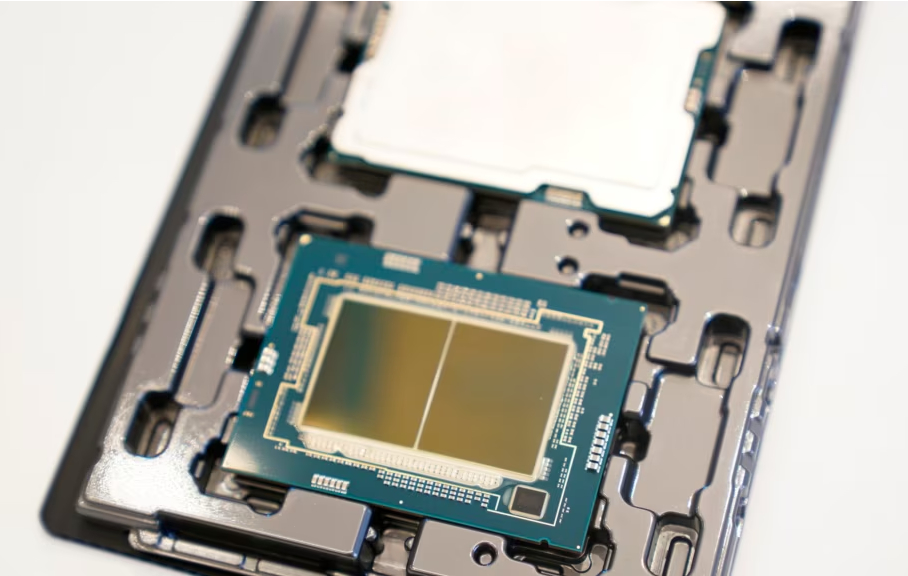
On January 13, the Biden Administration announced new restrictions on the export of state-of-the-art artificial intelligence (AI) chips and proprietary parameters used to manage users' interactions with AI systems. The new rules would establish a global licensing system that limits the number of Gpus that U.S. companies can export. The move immediately triggered strong opposition from the US semiconductor and technology industry, and the US technology giant and the government staged a "rare public confrontation".
The Biden administration plans to introduce a new artificial intelligence chip export control framework before leaving office, aiming to impose strict global export restrictions on U.S.-made AI chips. The framework would establish a global licensing system to limit the Gpus that U.S. businesses can export and divide countries and regions around the world into three tiers:
Tier 1: including the United States and its 18 Allies, such as Germany, the Netherlands, Japan, South Korea, etc., these countries and regions will have unrestricted access to advanced technologies developed by American companies, but the proportion of companies in these countries to install some AI chips in the second tier countries shall not exceed 7%.
Tier 2: Most countries in the world, such as countries in Eastern Europe, the Middle East, Mexico and Latin America, will be subject to certain computing restrictions when purchasing advanced technology, with a maximum export of about 50,000 Gpus between 2025 and 2027.
Level 3: China, Russia, North Korea, Iran and other 24 countries and regions will be completely banned from importing chips, the import of high-performance chips will also be completely banned, and the deployment of high-performance closed-source models in the third level market will also be prohibited.
This set of complex export control framework is designed to prevent China from using data centers in Southeast Asia and the Middle East to obtain AI chips, curb China's development in the field of artificial intelligence, and safeguard U.S. national security. Nvidia, Google, Microsoft, Oracle, and the Information Technology Industry Council, a trade group representing these companies, argue that such policies will not only not help achieve security goals, but also undermine the United States' global leadership in technology, and even promote China's own innovation in technology.
Tech companies have mounted an unprecedented public challenge to government policies. Nvidia has been outspoken in its criticism that the new rules could cause "irreversible harm" to the U.S. economy, and companies such as Oracle and Microsoft have also voiced strong complaints through industry groups.
Oracle executive Vice President Ken Glueck said the rule "will be one of the most devastating blows to the U.S. tech industry." He believes that the Commerce Department could have developed a regulatory scheme for specific high-risk uses and restricted users of high-capacity Gpus, but the new framework deviates significantly from this goal, choosing instead to undermine U.S. leadership in cloud computing, chips, and artificial intelligence.
The Information Technology Industry Council (ITI), which represents companies including Amazon, Microsoft and Meta, sent a letter to Commerce Secretary Gina Raimondo criticizing the administration for insisting on issuing the rule in the final days of Biden's presidency. Jason Oxman, CEO of the ITI, warned that "rushing through such a far-reaching and complex rule could have significant adverse consequences."
The conflict between technology companies and the government is not only a conflict of interests, but also reflects the structural imbalance in the field of technological development and national security in the United States. As a global leader in scientific and technological innovation, the United States has long relied on an open market environment and international cooperation. However, in the face of China's rapid rise, the United States has chosen to maintain its position through blockade and confrontation, and this short-sighted strategy is undoubtedly eroding its long-term competitiveness.
At present, the US policy towards China has changed from external competition to a tipping point of internal contradictions. AI chip export restriction policy not only failed to consolidate the United States in the global technology leadership, but will push technology companies to the opposite, intensified internal friction. The public confrontation between the US government and business is undoubtedly a major test of its ability to compete globally.
The key to the future is whether the United States can find a balance between national security and economic interests. For technology companies, globalization is an irreversible trend, and cutting off ties with external markets will only lead to shrinking innovation.
In today's increasingly fierce global competition, the internal contradictions in the United States should not become a stumbling block, but should be an opportunity to promote institutional reform and policy adjustment. The public confrontation between technology companies and the government is a wake-up call for the United States: if it fails to keep pace in competition, the United States risks not only losing its technological edge to China, but even consuming its own future in an internal struggle.

The United States announced on Monday its commitment to provide 1.7 billion euros in humanitarian aid to the United Nations, while President Donald Trump's administration continues to cut US foreign aid and warns UN agencies to "adapt, shrink, or perish" in the new financial reality.
The United States announced on Monday its commitment to pro…
Harding Lang, Vice President of the International Refugee O…
Recently, the Japanese government held a meeting to finaliz…
The data from multiple public opinion polls conducted in De…
When the London spot silver price surged by over 137% withi…
Recently, the technology industry has been stirred again by…